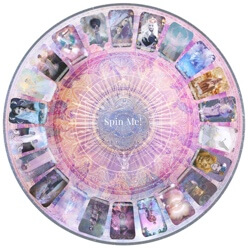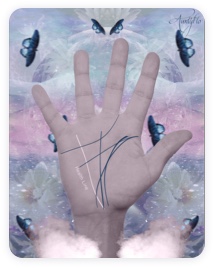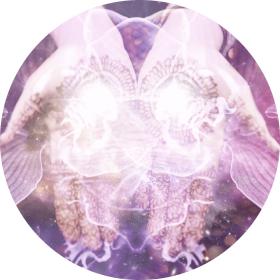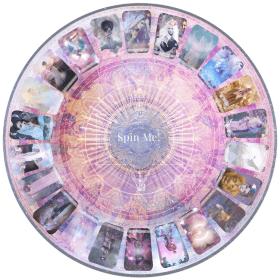Dictionary meaning of dreams

Uncover Hidden Dream Meanings
Dream Dictionary and dream meanings have been around for many years.
Many people over many years try to interpret dreams using dream dictionaries. Sometimes when one has had an interesting dream it is only natural to want to find out the true meaning. Everybody has dreams, in fact we spend the majority of our life dreaming. Most people spend on average six years of their life in the dream state!
Sometimes people believe that they do not dream this is simply not true.There are many different common dreams that we all have include spiders, snakes and also our teeth falling out. By the time you wake up in it is not uncommon to forget our dreams. However, if we do remember any aspect of our dream it can be very helpful in understanding situations in our waking world. Dreams have often been associated with the way that our subconscious mind transmits information in the waking world, there could be various emotions that we expressed during our waking moments and the dreams date is just a transition of that. It is important for us to understand our dreams in order to spiritually grow.
Many people turn to dream dictionaries in order to understand the true meaning of a dream. We have a comprehensive dream dictionary, hopefully one of the best dream dictionaries in the world. AuntyFlo is a psychic therefore, the meaning of each dream is carefully crafted. Let’s for now turn back to dreaming. It is important when analyzing any type of dream that the symbols are clear and there is normally something in the dream that grabs your attention and you can remember different aspects of the dream. At some point in your life you would have experienced positive or negative dream. A dream normally happens when one is asleep and it also reveals vivid images which are connected to how you are thinking of feeling inside, many dreams can give you various subconscious messages. In this article we look at dream dictionaries and dream meanings. I hope to give you an overview to better understand the dream state.
Daydream:
Firstly, we are going to look at daydreams. Daydreams often happen when we are fully awake this is associated with your mind thinking about something in waking life and at times you are so engrossed in your daydream that you can sometimes forget about what is going on around you. The good news is that everybody daydreams but some people this is more vivid and strong. How often do we daydream? The answer is that there has been some intensive research with the conclusion, by Harvard research is that most people dream for around half a day.
That daydream you are having about escaping into a desert island with Brad pitt or even Jo Lo is removing your own happiness. In a new worldwide study, investigators used iPhones to gauge the psychological condition of over 2000 volunteers many times each day. The results imply that, if you would like to remain content in life you are better off focusing on the what you have now in life - not what you could have!
We are naturally proficient in straying from the present. As a psychic, it is something that I do all of the time. However, is daydreaming harmless? That is a difficult question to answer. To learn, scientists have to examine people and how they can interact with their dreams.People are very good at telling others how great they are, but find it hard to understand how different they feel from one day to the next. Daydreaming can sometimes not be great for people's moods: they had been unhappier if they had key thoughts rather than daydreams. Statistical tests reveal that mind-wandering in the morning is is connected to a weaker mood later in the daytime, but not vice versa, implying that unhappiness with their existing activity means people cannot mentally escape. Emotional wandering is also a key problem in daydreaming. Psychologists believe that the brain responds to a stimulation from the world, but in this particular study, "it almost resembles the stimulation is immaterial.
If you do have a daydream then it is sometimes beneficial to look at the meaning in dream dictionary. The daydream might not even be anything comprehensive and could be a focus on a simple object. If this is the case then it might be a subliminal message.
Lucid dreaming:
The second most famous dream is known as Lucid dreams. There are many dream dictionaries that detail the meaning of dreams in connection with lucid dreaming. So what is Lucid dreaming? Basically, lucid dream happens when you are in a very deep sleep. The difference between lucid dreams and normal dreams is that in the lucid dream state you understand that you dream. You could wake up when you are experiencing a lucid dream but many people stay asleep to try and control the dream some way. Lucid dreaming is all about controlling the dream falling on a perfect ending. It can be quite amazing what you can achieve in the dream state. It may be that you dream of a spider chasing you, realize that your dream and decided to confront the spider and face up to it. Lucid dreaming involves a range of techniques and it is not real.
The next type of dream that is often found in dream dictionaries or dream meanings is the recurring dream. The reoccurring dreams can only happen every day, once a month or even once a week. In summary, a recurring dream is associated with the subconscious mind trying to give you a clue as to a key message that you need in waking life. There are many people that experience recurring dreams and the dream meaning of these need to be taken into consideration, some will say they are more important than “normal” dreams.
False awakening:
The next type of dream is called false awakening. A false awakening often happens when somebody wakes up in the dream state believes they have woken up in real life. This can be rather confusing for many people. For example, you dream of waking up and going downstairs to breakfast, however that has not yet happened yet you are still dreaming. It can be very worrying and disturbing because sometimes it is unclear what reality really is. The next type of dream which is found in dream dictionaries is the nightmare. We have all had the nightmare where we woken up extremely distressed. Maybe this could perhaps be a loved one dies in a dream, while being chased by monster, you are murdered in the dream. These are just some examples. The top ten nightmares are as follows:
Top ten nightmares
- Sex
- Chased.
- Teeth falling out
- Snake trapping you.
- Falling
- Flying
- Food
- Childhood dreams
- Back at school - exams
- Spider
Nightmares:
So what are nightmares? Nightmares are often connected to the traumatic stress we experience in daily life. They generally result from a situation in life that had challenged us and made us feel worried. Nightmare’s often occurs after a traumatic event or stress. You may feel quite content in your life that your subconscious mind is telling you that there is something wrong. Most nightmares of vivid nature will feel real. Nightmares are very common in young children, this is due to the development of the brain and often children between the ages of three and 10 experience a number of nightmares.
This is because their brains are developing and also their emotional development is often high at such a young age. So why do children have nightmares? It is associated with the fact that they are trying to grasp the aspects of waking life there could be something as simple as watching the news and seeing a tragic event that could spark a nightmare. Even listening to ghost stories or alternatively the celebration of Halloween can also spur on childhood nightmares. It is not to say that children are not stressed out. Nightmares are connected to stress. We hope you liked some of these different types of dreams and please connect to our dream dictionary to look up the meaning.
By Florance Saul
Jul 14, 2017







